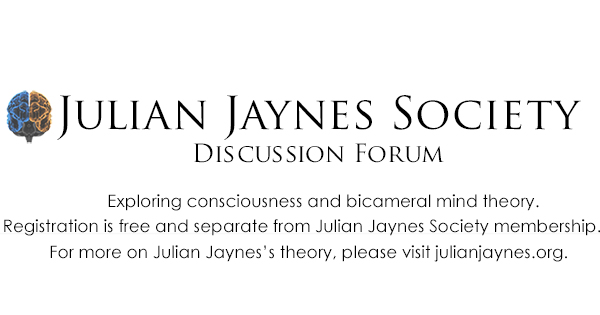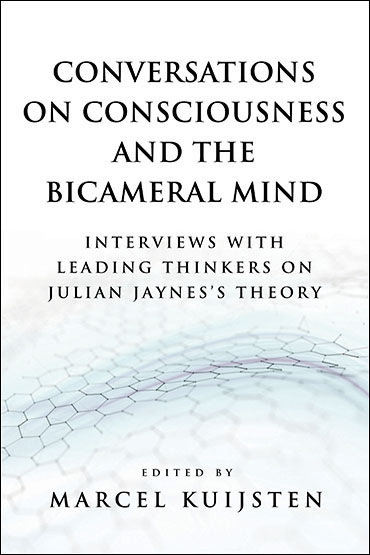Jaynesian Psychology: Theories in Search of a Paradigm Shift
Science must guard against preconceptions, since seemingly objective research results and conclusions can be subtlety influenced by personal biases and the subjective worldview of individual researchers. But in his immensely influential The Structure of Scientific Revolutions (1962), Thomas Kuhn went one step further. He argued that science, rather than progressing in a linear way by accumulating more facts, undergoes periodic "paradigm shifts." Knowledge is not only established by objective criteria but is defined by a consensus of the scientific community. Examples of important intellectual earthquakes include the transition from the geocentric model of the solar system to the heliocentric model; from Newtonian mechanics to quantum physics; from the miasma (bad air or mist) theory of epidemics to modern germ theory. Darwin’s theory of evolution through natural selection also marked a fundamental transformation of our view of species diversification and adaptation, as did Einstein’s revolutionizing of our definitions of space, time, and gravity. Besides these major breakthroughs there are other lesser-known developments that mark the march of scientific progress.
To illustrate how science advances within a Kuhnian perspective, we can list the following stages of intellectual structuration. First is the pre-paradigmatic stage, i.e., the period before a set of working assumptions is seriously challenged. Second comes “normal” science during which progress is achieved through experimentation and the collection of data within the confines of a relatively stable academic architecture. This is the stage of puzzle-solving and can be remarkably productive as it racks up discoveries and successes. During the period of normal science, the failure to confirm or conform to paradigmatic expectations is seen not as refuting the paradigm, but as due to the mistakes of researchers. Arguably, competing paradigms can co-exist during the period of normal science, but these are incommensurable, that is, it is impossible to understand a certain fundamental framework through the theoretical lens and terminology of another.
The third stage sees researchers encounter mounting anomalies and crises. These chinks in the armor of conventionally-accepted concepts can no longer be tolerated. Such weaknesses in normal science lead to the final stage: “Revolutionary science.” A new structure is built that subsumes older knowledge along with inconsistent results within one edifice of knowledge. Disruptions to the foundational framework open new intellectual horizons, and scientists begin to appreciate what they would never have previously considered valid (my account of Kuhnian thought is admittedly simplistic. Debates surround the question of who first conceived the notion of paradigm shift; various accounts of the Kuhnian perspective; and what Kuhn himself meant by paradigm shift).
Is the psyche governed by natural laws (neurological, biological)? Or is it shaped by culture (historical, social)? One’s methodology, definition of data, and selection of type of evidence is determined by how one views psyche and its features, such as conscious interiority: Should psychology be approached objectively, i.e., what can be observed via experiments, tests, and measurements? Or subjectively, i.e., what people think as indicated by descriptions, meanings, and artifacts? Is the human mind a product of evolution? Or were its different facets socially constructed more recently in history? These aforementioned questions implicate the great conceptual chasm dividing modern scholarly endeavors that can be traced back to ancient Greece: Physis (workings of the cosmos, laws of nature) versus nomos (conventions and rules, cultural norms). The former falls under the purview of the natural sciences with their goal of delineating cause and effect. Nomos is associated with the social sciences and humanities and poses questions about heuristics and translation. Should researchers attempt to reduce psychological processes to their ultimate causes (relying on statistical modeling, neuroanatomical analyses, etc.)? Or try to interpret them (using the relatively recent archaeological record, learning ancient languages, etc.)?
The current conceptual foundation of mainstream psychology is informed by a naturalistic rather than a culturally-constructed view of mentality (though disciplines such as social psychology incorporate extra-psychic processes into their analyses, they nevertheless assume that cultural accretions are layered over a deeper, more basic psychic structure relatively immune to environmental forces). Jaynes’s theories will not gain traction until an academic sea change revolutionizes establishment psychology. But bedrock assumptions about mentality are preventing an upheaval in deeply-held beliefs in regards to the nature of conscious interiority. So what needs to be upended? At the most abstract level, a Jaynes-friendly paradigmatic rupture would see culture and history, not just neurology and natural selection, as indispensable ingredients of mind. One does not have to go back into humankind’s distant evolutionary past to find major ruptures in mentality; rather, significant alterations in the human psyche are discernible in our relatively recent past (ca. 1200 BCE). More specifically, acceptance of a Jaynesian perspective would mean a rejection of the unhelpful tendency to reduce conscious interiority to neuroanatomical structures, as well as a recognition that hallucinations (“divine voices and visions”) were not only not inherently pathological, but were once a positive adaptation.
A glance at the current scholarly landscape reveals that numerous fields, whether shaped by the physis or nomos perspective, can contribute to advancing a Jaynesian psychology. However, a more explicit disciplinary configuration is required to emphasize the radical import of Jaynes’s hypotheses. I submit that “archaeopsychology” (or “historical psychology”) is an appropriate specialization whose agenda — the reconstruction of earlier mentalities — that resonates with a much-needed rethink of fundamental notions. While acknowledging the role of evolutionary forces, genes, and neurology, archaeopsychology highlights recent historical-cultural changes as being just as consequential as natural-scientific principles to the emergence of conscious interiority.
Jaynesian Psychology: Theories in Search of a Paradigm Shift
Posts by anthropologist, mental health counselor, and author Brian J. McVeigh on Julian Jaynes's theory and related topics.
Return to “Brian J. McVeigh's Random Thoughts”
Jump to
- JJS Forum
- ↳ General Discussion
- ↳ News Items Related to Jaynes's Theory
- ↳ Book Discussion: The Origin of Consciousness and Julian Jaynes Society Publications
- ↳ Myths, Misconceptions, and Fact Checks About Julian Jaynes's Theory
- ↳ Brian J. McVeigh's Random Thoughts
- ↳ Julian Jaynes
- ↳ Conferences, Events, and Local Discussion Groups
- ↳ Lecture Discussion
- ↳ Interview and Q&A Discussion
- ↳ 1.0. Hypothesis One: Consciousness Based On Language
- ↳ 1.01. Hypothesis One: Consciousness Based On Language | Subtopic: Consciousness & Dreams
- ↳ 1.02. Hypothesis One: Consciousness Based On Language | Subtopic: Consciousness in Children
- ↳ 1.03. Hypothesis One: Consciousness Based On Language | Subtopic: Consciousness and AI
- ↳ 2.0. Hypothesis Two: The Bicameral Mind
- ↳ 2.1. Hypothesis Two: The Bicameral Mind | Subtopic: Auditory Hallucinations in Normal Adults
- ↳ 2.2. Hypothesis Two: The Bicameral Mind | Subtopic: Hallucinations & Imaginary Companions in Children
- ↳ 2.3. Hypothesis Two: The Bicameral Mind | Subtopic: Hypnosis, Possession & Altered States of Consciousness
- ↳ 2.4. Hypothesis Two: The Bicameral Mind | Subtopic: Religion & the Bicameral Mind
- ↳ 2.5. Hypothesis Two: The Bicameral Mind | Subtopic: Schizophrenia
- ↳ 2.6. Hypothesis Two: The Bicameral Mind | Subtopic: The Mentality of Pre-Literate & Pre-Modern Peoples
- ↳ 3.0. Hypothesis Three: Dating the Development of Consciousness
- ↳ 4.0. Hypothesis Four: Jaynes's Neurological Model for the Bicameral Mind
- ↳ The Bicameral Mind in Fiction, Film & Popular Culture
- ↳ Information for Students


